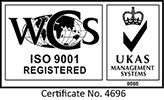
As a top-quality supplier of automatic test systems, one of the questions that is put to the team at RES is ‘What are the capabilities of your Automatic Test Equipment (ATE)?’ The answer is that they typically perform equipment tests in a production environment to ensure product has been built correctly but can also implement real-time simulation capabilities to provide hardware/software integration and design proving facilities. The product being tested may vary from a simple piece of “dumb” electronics to a multi-processor distributed system.
How Is ATE Designed To Work Systemically?
ATE is often deployed to evaluate and verify the performance of electronic equipment, such as integrated circuits or running checks on certain parameter requirements. As engineers design ever more complex electronic systems for anything from industrial machinery to fighter jets, the performance of these systems needs to be measured, often in real-time, to confirm correct operation and supply diagnostic information for fault-finding. When a test system is implemented, various types of ATE are brought together to work harmoniously with one another to generate the set of telemetry and other data outputs that provide a simple-to-understand set of results.
The Benefits Of ATE
ATE offers engineers the chance to see how their systems are functioning as they are being operated. This means that a vast number of checks can be carried out without the need for equipment to cease functioning whilst its electronics are inspected. As well as this undoubted financial benefit, the amount of work that technicians are required to carry out diminishes. Furthermore, automated testing of the Unit Under Test (UUT) provides a more reliable level of output because human error is eradicated.
Which Industries Use Automatic Test Systems?
In conclusion, automatic test systems provide a holistic approach to the type of performance verification required by modern industries. This means that they are very much sought after by engineers who want to reduce their exposure to risks in the aerospace sector, for example. Other industries which make use of automated test systems include manufacturers and those in the automotive sector. The oil and gas as well as the defence and security industries both heavily rely on automated testing experts for their processes, too.
Download our Company Brochure or get in touch to talk about your automatic test system requirements.


